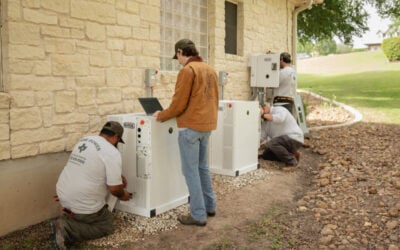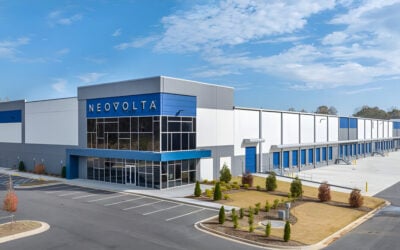
Northern California Power Agency (NCPA) has negotiated the terms of an energy storage services agreement (ESSA) with Aypa Power, relating to offtake from a 400MW standalone BESS destined for the County of San Bernardino.
First established in 1968, NCPA is a joint powers agency representing the interests of 16 publicly-owned electric utilities located across northern and central California.
Following approval of the agreement by NCPA officials back in June, the ESSA is currently being scrutinised by each of its member organisations during their own board meetings.
Most interestingly, the City of Palo Alto’s most recent board meeting provided detailed insight into the specifics of the ESSA, including information that wouldn’t usually be disclosed to the public.
Try Premium for just $1
- Full premium access for the first month at only $1
- Converts to an annual rate after 30 days unless cancelled
- Cancel anytime during the trial period
Premium Benefits
- Expert industry analysis and interviews
- Digital access to PV Tech Power journal
- Exclusive event discounts
Or get the full Premium subscription right away
Or continue reading this article for free
Trolley BESS, 50MW of capacity from 400MW
As stipulated by the 20-year agreement, NCPA’s member organisations will have access to Aypa Power’s 400MW Trolley BESS project, which is currently under development at a site near the City of Rancho Cucamonga in San Bernardino County.
Acting as an intermediary, NCPA negotiated the terms of the ESSA with Aypa Power on behalf of its member organisations, after issuing an RFP during 2024 for new renewable resources.
Aypa Power’s Trolley BESS proposal was selected by NCPA staff ahead of approximately 30 other standalone and solar co-located BESS projects.
Described by the City of Palo Alto as being at “an advanced stage of development,” Aypa Power has already secured an interconnection agreement with Southern California Edison (SCE) for the project, along with Full Capacity Deliverability Status (FCDS) designation from the California Independent System Operator (CAISO).
The project is expected to commence commercial operations sometime during June 2029.
More attractive than other market offers
Alan Kurotori, in his position of Utilities Director, presented the terms of the ESSA to the City of Palo Alto’s City Council during its most recent September 15 meeting.
“There are some significant challenges right now when procuring new renewable energy resources, particularly in California,” explained Kurotori to Palo Alto’s City Council.
The first challenge is delays relating to interconnection, with the Utilities Director explaining how it can sometimes take “five, six years to achieve, or sometimes even longer” for developers to receive the green light to connect from CAISO.
The second and more detrimental uncertainty relates to recent changes in renewable energy policy at the Federal level, partiularly surrounding import tariffs and tax incentives.
“These [changes] are particularly impactful for solar and storage projects where most of the products being used are coming from China,” said Kurotori.
With such uncertainty having been introduced over the past eight months, developers have been asking offtakers to share some of the burden and risk when it comes to final completion costs.
In the words of Kurotori, “developers are really insisting on provisions being added to contracts that allow them to raise the contract price.”
This year, Energy-Storage.news has reported on several of these new risk-mitigation offtake agreements, which have included some of the industry’s largest developers, including NextEra Energy Resources (NEER), EDP Renewables and Intersect Power.
Unlike in the majority of these agreements, the City of Palo Alto revealed details surrounding cost and risk provisions.
Under the terms of the agreement, the City of Palo Alto is set to receive 50MW from Aypa Power’s Trolley BESS project at a cost of US$12.71/kW-month, representing an annual cost of US$7.6 million.
If an independent auditor finds final project costs were inflated due to tariffs or tax incentives, Aypa Power can increase the contracted energy cost within the next year by as much as 6% (up to US$13.47/kW-month)
However, even with the potential 6% increase, Kurotori noted that the “price here is very attractive compared to what else we’re seeing in the market for storage, which is typically priced in the US$15 – US$16/kW-month range.”
When considering these costs, alongside the potential sale price of energy and resource adequacy, the City of Palo Alto has given the project a net value of around US$8/kW-month, which works out to be around US$4.6 million annually.
The Palo Alto City Council unanimously approved the agreement at the end of Kurotori’s presentation, with the remaining NCPA member organisations expected to follow suit before the end of this month.





